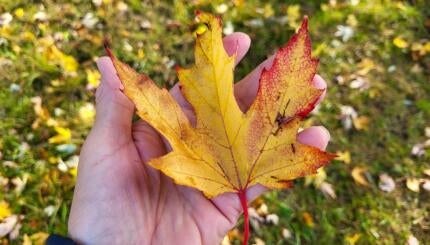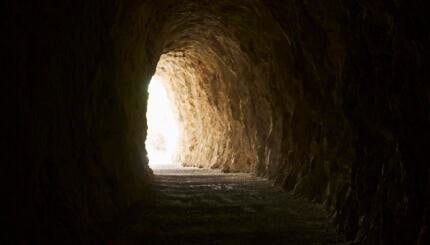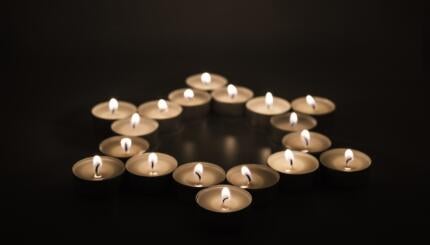While I live with an emotional connection to my mother’s anguish at having been born a Jew, and to my father’s quiet acceptance of the same, I feel myself more like a ger, a Jew by choice, as if the decisions I have made, and go on making, in response to my Jewish inheritance shape my Jewishness far more than the specific circumstances into which I was born.
And that is probably why I find Jewishness, the living condition of being a Jew, is not an immutable foundation, but rather a more pliable, protean, adaptive, even chameleon-like phenomenon, which will be what it wants to be and become what it needs to become. Jewishness is for me mobile and volatile. It evolves because it is impressionable, susceptible, porous to the transformative powers of historical context and culture, swayed by the ebbs and flows of emotion. And it is shaped at every turn by the choices Jews make — and fail to make.
Some years ago, my wife Elana and I were fortunate to spend time with Albie Sachs, a South African lawyer, author and anti-Apartheid activist who was jailed, exiled and nearly killed by the state and who, in 1994, was appointed by President Nelson Mandela to serve as a justice on South Africa’s first Constitutional Court. I mention him here because of the instructive way he thinks about the role of Jewishness in his life.
Sachs has described himself as a “very secular person” who nonetheless deeply identifies with Jewishness, citing Karl Marx, Albert Einstein and Sigmund Freud as chief inspirations. Much like those luminous figures, he is a conscious Jew who, though not active in Jewish communal affairs, recognizes in his personal destiny the impact of contemporary Jewish experiences of marginalization, migration and emancipation and how these contributed to his ability to endure the anguish of solitary confinement, forced expatriation and physical attack. As if the words of Exodus were seared into his heart: “You know the soul of the stranger for you were strangers in the land of Egypt.”
With your help, My Jewish Learning can provide endless opportunities for learning, connection and discovery.
It is edifying to ask yourself if there is a Jew, historic or current, with whom you identify. What happens if you allow this identification to take hold of your imagination, such that she seems to become you? Are you surprised? Emboldened? Humbled? Frightened? Do you stand taller or cave? Do you feel summoned or dismissed?
When I was a freshly ordained Reform rabbi living in Jerusalem, I helped prepare a Hanukkah study guide for the Shalom Hartman Institute which asked readers whether there were any contemporary figures who, in their judgment, played analogous roles to Judah Maccabbe, the hero who waged a sophisticated guerrilla war that enabled the reestablishment of a Jewish state in ancient Judea. Say, for example, Theodore Herzl? Vladimir Jabotinsky? Chaim Weizmann, or David Ben Gurion? “They are not my leaders,” the institute’s founder, David Hartman, responded.
Hartman identified with Jewish leaders and thinkers long dead, like Rabbi Akiva and Maimonides, as well as with one living teacher, Rabbi Joseph Soloveitchik, who had inspired him but also left him feeling frustrated, disappointed, even abandoned. Hartman struggled passionately with Soloveitchik’s focus on the subjective dimensions of Jewish religious life, the experience of loneliness and the thirst for redemption expressed in his landmark essay, “The Lonely Man of Faith.” And he also judged Soloveitchik’s refusal of the invitation to serve as Israel’s chief rabbi, proffered him by Ben Gurion in 1959, to be a historic catastrophe for the State of Israel and a tragic flight from personal responsibility.
Living with and loving others who have failed you, betrayed you and disappointed you is the inescapable experience of those who take the risk of loving, who let themselves feel trust and security, authority and truth, in another person. It is also the experience the Hebrew Bible projects onto the inner life of the Creator, who not only illuminated the primordial darkness, but brought the unstable, desire-driven human animal into the placid sufficiency of the Garden of Eden. This odd, yet familiar (dare I say, Jewish?) God, who stamped these mortal creatures with his own image, then falls into deep identification with them, and at times anguished despair over having created them.
Maybe the archetype of Jewishness is precisely the experience of identifying with this all-too-human God, who commits but changes, forgets but then remembers, fails but learns, starts and stumbles over and over again. By this reading, the recollection of Jewishness can pounce upon you, as happens to God who, from within a furious fit announces: “I will wipe out the human animal I created from off the face of of the earth!” But then God catches sight of Noah, who looks like a rainbow, a fragile, multi-hued web that stretches from earth to heaven, and that seems to enfold and swaddle the defeated deity like a shawl and soothes this god out of genocidal madness.
For me then, Jewishness sometimes feels like a jolt, a stunning reminder of powers I’d forgotten that inexplicably allow me once again to stop, wait and choose life in the face of violation, gratuitous cruelty, hollow indifference, rank malevolence. When I need to, sometimes I can identify with Abraham at the moment when, hearing the angel atop Mount Moriah, he drops the knife. And sometimes I identify with Job who, as if caught in a cyclone no one else feels, hears a voice no one else discerns ask him: “Where were you when I formed the earth?”
I imagine that to Job, that voice alone was a love song, a shawl that enwrapped him. And the words he heard were, “Oh have I missed you.”
This article initially appeared in My Jewish Learning’s Shabbat newsletter Recharge on February 15, 2025. To sign up to receive Recharge each week in your inbox, click here.



